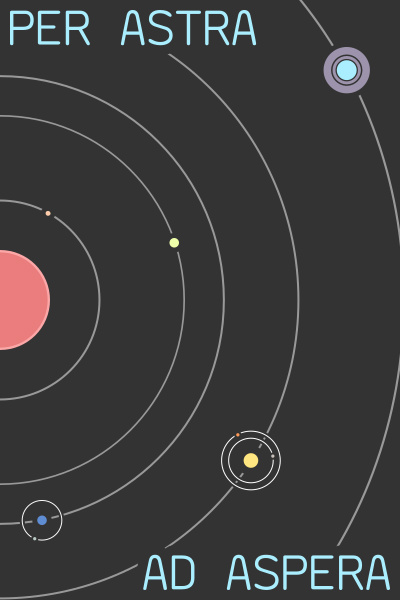| summaryrefslogtreecommitdiff |
diff options
Diffstat (limited to 'content/learn/06.pointers')
| -rw-r--r-- | content/learn/06.pointers/default.md | 171 |
1 files changed, 171 insertions, 0 deletions
diff --git a/content/learn/06.pointers/default.md b/content/learn/06.pointers/default.md new file mode 100644 index 0000000..a4108bb --- /dev/null +++ b/content/learn/06.pointers/default.md @@ -0,0 +1,171 @@ +--- +menuTitle: Pointers +title: "Addressing Pointers" +weight: 6 +--- +In [the previous step](/learn/files), we split the story into multiple files +to make it more readable. Now, we'll see pointers, because they were needed for +two features that were glossed over in what was presented before: +* Using sequences as imperative procedures. +* Prompting the user for content. + +A pointer is a value that indicates a location in memory where some +data is stored. This can be used as a value that will tell some instruction +where to put data. + +Pointers have types. For example, `(ptr int)` is the type corresponding to +pointers to `int` data. + +To compute a pointer to a variable `v`, simply write `(ptr v)`. + +Given a pointer `p`, the variable being pointed to can be referred to using +`(at p)`. + +**data.fate:** + + (fate_version 1) + + (global int hero_money) + (global string hero_name) + + (set hero_money 42) + +**get_a_refill.fate:** + + (fate_version 1) + + (require data.fate) + (require actions.fate) + + (define_sequence lower_price_of_booze + ( + ((ptr int) price_pointer) + (int decrease) + ) + Great! The price of booze just lowered from (at price_pointer) + (set (at price_pointer) + (- + (at price_pointer) + (var decrease) + ) + ) + to (at price_pointer)! + ) + + (define_sequence get_a_refill () + (local int price_of_booze) + + (set price_of_booze 12) + + Staring straight at the barman, you raise your glass and proclaim: + (newline) + "This soon-to-be world savior needs more booze!" + (newline) + The barman's lack of reaction is disappointing, but seeing the beer + being poured does help improve the mood. + (newline) + Satisfied, you hand the barman (var price_of_booze) copper coins. + (visit pay (var price_of_booze)) + (newline) + The barman sighs, then asks: + (prompt_string (ptr hero_name) 2 64 What is your name, then, hero?) + (var hero_name)? + (newline) + The barman looks surprised. + (newline) + (visit lower_price_of_booze (ptr price_of_booze) 4) + (newline) + "I have heard of you, (var hero_name)," the barman exclaims, "I have + a quest for you!" + (newline) + It's your turn to sigh. + (newline) + The barman hands you a bag, and says: + (newline) + "Take this pre-payment and head to the smithy." + (newline) + ) + +* `(prompt_string (ptr hero_name) 2 64 What is your name, then, hero?)` prompts + the player with `What is your name, then, hero?` and expects a string input + with a size between `2` and `64` characters. This input is stored at `(ptr + hero_name)`, which means that `hero_name` takes that value. +* The `lower_price_of_booze` sequence shows how pointers can be used to modify + variables outside of a sequence's range. +* `(var price_of_booze)` is equivalent to `(at (ptr price_of_booze))`. + +Our hero, who'll obviously end up being the lost heir of some royal family, +should already have good equipment. It would be useful to have a character +sheet, so [let's create one](/learn/structures). + +---- + +## Unchanged Files +**actions.fate:** + + (fate_version 1) + + (require data.fate) + + (define_sequence pay ( (int cost) ) + (set hero_money + (- (var hero_money) (var cost)) + ) + ) + +**falling_asleep.fate:** + + (fate_version 1) + + (require data.fate) + + (define_sequence fall_asleep () + Deciding to break away from the expected storyline, you promptly + fall asleep. + (newline) + ... + (newline) + Upon waking up, your hard-trained reflexes inform you that someone + stole all your money. + (set hero_money 0) + (newline) + This set-back was more than you could take. You give up on this + barely coherent story. + (end) + ) + +**main.fate:** + + (fate_version 1) + + Once upon a time, starting a story with these words wasn't considered + a cliche. Starting in a tavern might also not be seen as very + original. Having the main character be an street orphan, raised by + some mysterious sage all to end up as a mercenary with an uncommonly + strong sense of honor probably isn't going to lead to any praises for + novelty either. Maybe you should drink to that. + (newline) + Or maybe you shouldn't. This isn't your first mug. Not your second + either. Drinking to forget that you are a stereotypical hero isn't + going to solve anything. Worse, the alcoholic trait is part of the + image. + (newline) + As you contemplate your own pointless description, your gaze leaves + what turns out to be an already empty glass in your hand and finds the + barman. + + (player_choice + ( + ( Ask the barman for a refill ) + (visit get_a_refill) + ) + ( + ( Fall asleep ) + (jump_to fall_asleep) + ) + ) + + (require get_a_refill.fate) + (require falling_asleep.fate) + + (end) |


